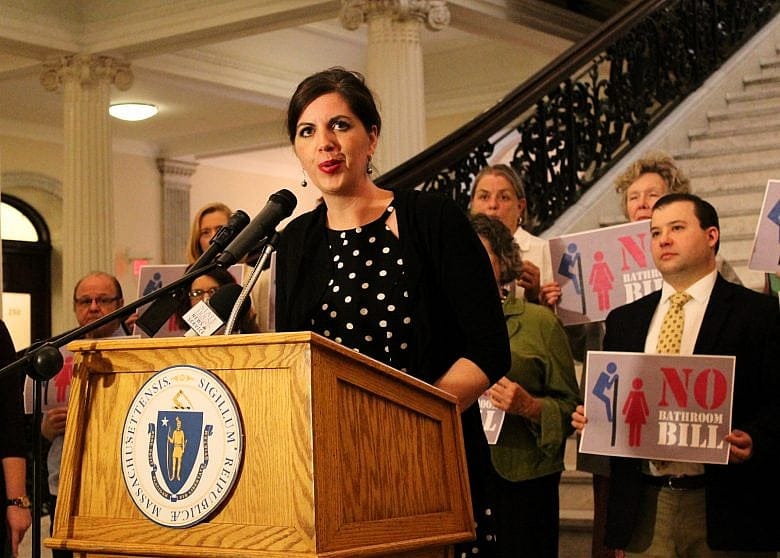‘Bathroom bill’ comes under fire over privacy, safety

BOSTON – Opponents of a proposal that would let people in Massachusetts use sex-segregated public bathrooms and changing rooms of their choice, regardless of their anatomy, spoke out on Beacon Hill Wednesday against a growing chorus accusing them of discrimination.
Speaking to reporters at the State House, Kaeley Triller shot back at activists who hype the pending legislative proposal as anti-discriminatory.

